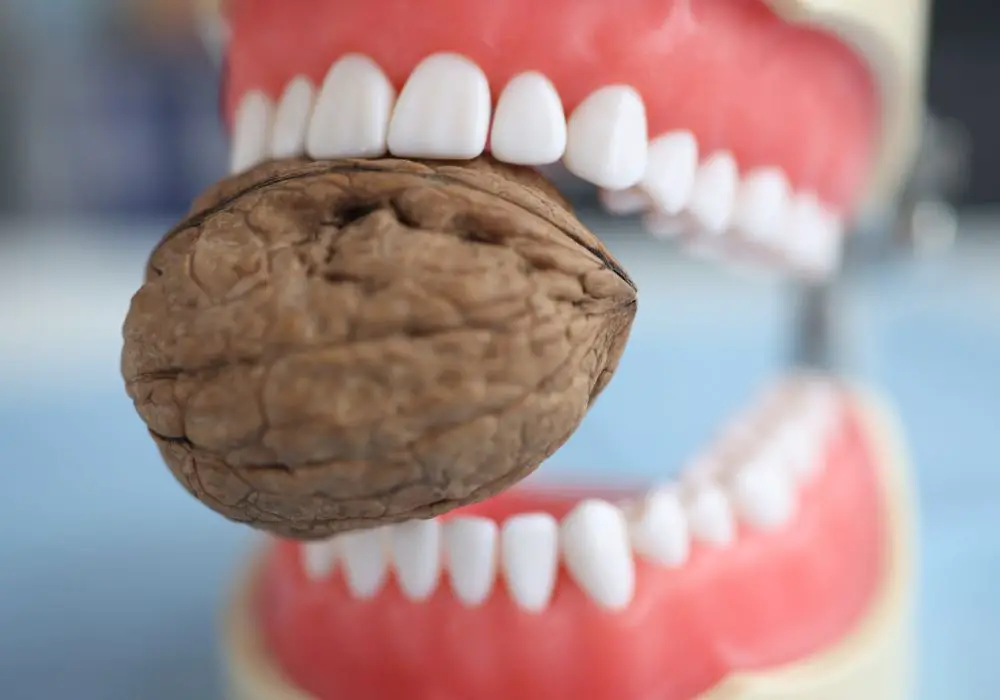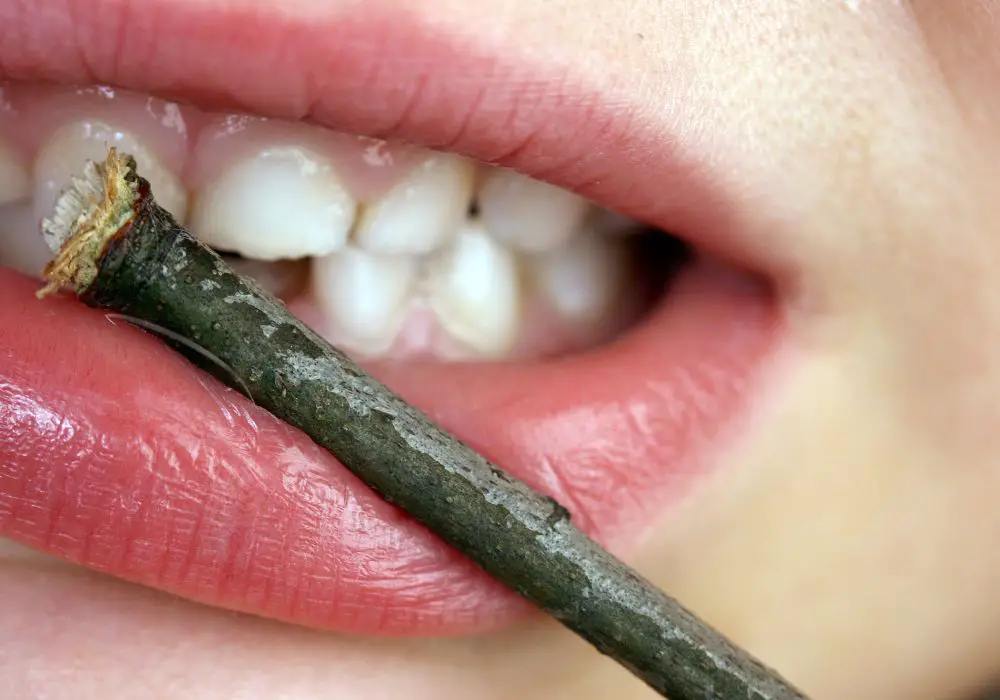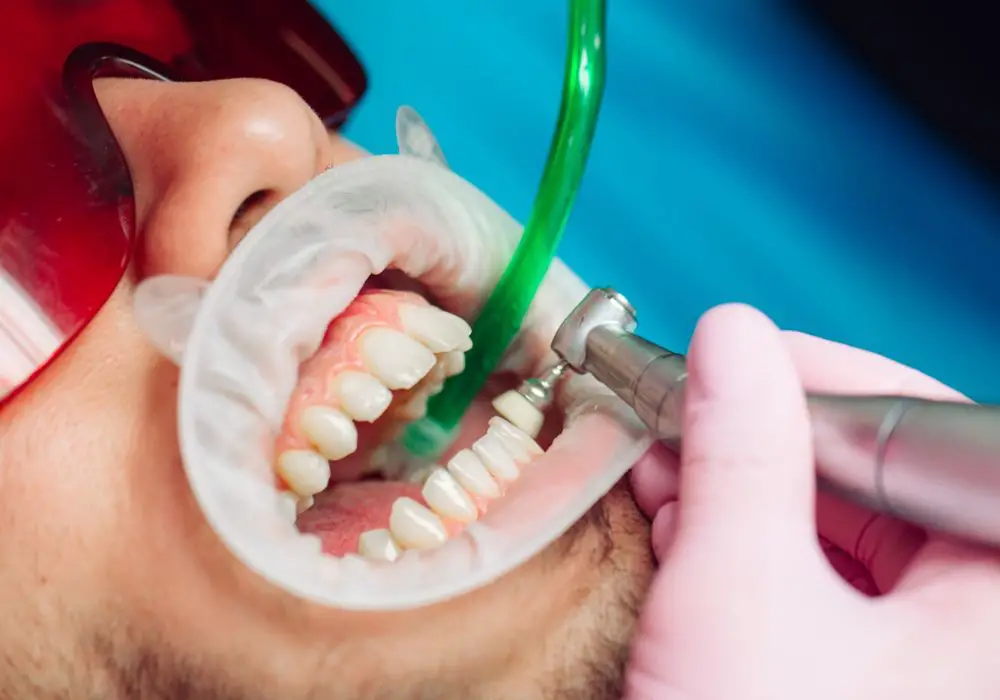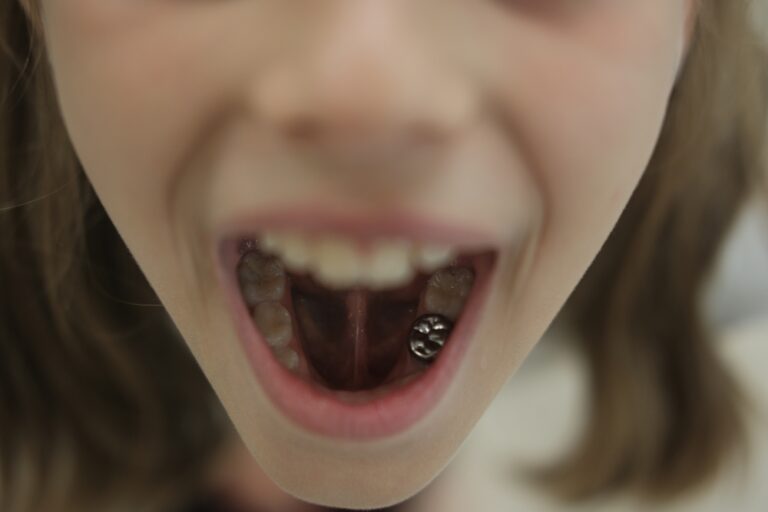Do you ever wonder how strong your teeth are? Your teeth are an important part of your body that allow you to chew food and speak clearly. But have you ever thought about how much pressure your teeth can withstand? Teeth are made up of different layers, each with its own unique strength and purpose. Understanding the strength of your teeth can help you take better care of them and prevent damage.
The outermost layer of your tooth is called enamel, which is the hardest substance in your body. It protects the inner layers of your tooth from damage and decay. However, even though enamel is incredibly strong, it can still be damaged by acidic foods and drinks, as well as poor dental hygiene. The layer underneath enamel is called dentin, which is softer than enamel but still strong. Dentin makes up the majority of your tooth and provides support for the enamel. The innermost layer is called the pulp, which contains nerves and blood vessels that keep your tooth alive. While the pulp is important, it is also the most vulnerable to damage.
Understanding Tooth Structure

Your teeth are more than just hard, white objects in your mouth. They are complex structures made up of different layers that work together to help you bite, chew, and speak. Understanding the anatomy of your teeth can help you better appreciate how strong they are and how to take care of them.
Enamel Strength
The enamel is the outermost layer of your tooth and is the hardest substance in your body. It covers the crown of your tooth and protects it from wear and decay. Enamel is made up of tightly packed mineral crystals, mostly hydroxyapatite, which give it its strength. However, even though enamel is strong, it can still crack or chip if subjected to too much force or pressure.
To keep your enamel strong, it’s important to practice good oral hygiene. Brush your teeth twice a day with a fluoride toothpaste and floss daily to remove plaque and bacteria that can weaken your enamel. Avoid sugary and acidic foods and drinks that can erode your enamel over time.
Dentin and Pulp
Beneath the enamel is a layer of dentin, a hard, calcified tissue that makes up the bulk of your tooth. Dentin is not as hard as enamel but is still strong and resilient. It contains tiny tubules that connect to the nerve endings in the pulp, the innermost layer of your tooth.
The pulp contains blood vessels, nerves, and connective tissue that help nourish and support your tooth. If your enamel is compromised, bacteria can enter the tooth and cause an infection in the pulp, leading to a painful abscess. To prevent this, it’s important to seek prompt dental care if you experience any tooth pain or sensitivity.
In conclusion, your teeth are incredibly strong and resilient structures that play an essential role in your daily life. By understanding the anatomy of your teeth and practicing good oral hygiene, you can help keep them healthy and strong for a lifetime.
Factors Affecting Tooth Strength
Your teeth are incredibly strong, but they are still vulnerable to damage. Several factors can affect the strength of your teeth, including your diet and nutrition, oral hygiene, and genetics.
Diet and Nutrition
What you eat and drink can have a significant impact on the strength of your teeth. A diet that is high in sugar and carbohydrates can increase the risk of tooth decay and weaken the enamel. On the other hand, a diet that is rich in calcium, phosphorus, and vitamin D can help strengthen your teeth and protect them from damage.
Foods that are good for your teeth include:
- Dairy products such as milk, cheese, and yogurt
- Leafy greens like spinach and kale
- Nuts and seeds
- Lean proteins like chicken and fish
- Fruits and vegetables high in fiber, such as apples and carrots
Oral Hygiene
Maintaining good oral hygiene is essential for keeping your teeth strong and healthy. Brushing your teeth twice a day and flossing daily can help remove plaque and prevent tooth decay. Using mouthwash can also help kill bacteria and freshen your breath.
It’s important to use the right technique when brushing your teeth. Make sure to brush all surfaces of your teeth, including the fronts, backs, and chewing surfaces. Use a soft-bristled toothbrush and fluoride toothpaste.
Genetics
Your genetics can also play a role in the strength of your teeth. Enamel thickness and structural integrity are key determinants of overall tooth strength. Dentin, the softer bonelike tissue under the enamel, also affects tooth strength. Dentin is made of a matrix of collagen fibers reinforced with hydroxyapatite crystals, which cushion the enamel against fracture.
While you can’t change your genetics, you can take steps to protect your teeth. Eating a healthy diet and maintaining good oral hygiene can help keep your teeth strong and healthy, regardless of your genetic makeup.
Remember, taking care of your teeth is essential for maintaining good oral health. By paying attention to your diet and nutrition, oral hygiene, and genetics, you can help keep your teeth strong and healthy for years to come.
How to Measure Tooth Strength

If you’re curious about how strong your teeth are, there are a few ways to measure their strength. In this section, we’ll go over two methods: Bite Force and Enamel Hardness Test.
Bite Force
Your bite force is a measure of how much pressure your teeth can exert. On average, a human’s bite force can measure up to 200 pounds of pressure. However, this can vary depending on factors such as age, gender, and dental health.
To measure your bite force, you can use a bite force gauge. This device measures the amount of force you can exert with your teeth and provides a reading in pounds or kilograms. You can purchase a bite force gauge online or ask your dentist if they have one available.
It’s important to note that measuring your bite force should not be done regularly or excessively, as it can cause damage to your teeth and jaw muscles.
Enamel Hardness Test
Enamel is the outermost layer of your teeth and plays a crucial role in tooth durability. It is the hardest and most mineralized substance in the human body, preventing tooth decay by acting as a physical barrier against bacteria and acids.
To measure the hardness of your enamel, your dentist can perform an enamel hardness test. This test involves using a tool to scratch the surface of your enamel and measuring the depth of the scratch. The deeper the scratch, the softer your enamel is.
It’s important to note that while enamel hardness can vary between individuals, it is not a measure of overall tooth strength. Other factors, such as the health of your gums and underlying bone, also play a role in tooth strength.
In summary, measuring tooth strength can be done through bite force and enamel hardness tests. However, it’s important to note that these tests are not a definitive measure of overall tooth strength and should not be done excessively. Regular dental checkups and good oral hygiene practices are the best ways to maintain strong and healthy teeth.
Improving Tooth Strength

Taking care of your teeth is essential for maintaining good oral health. Proper dental care and healthy eating habits can help improve the strength of your teeth.
Proper Dental Care
Regular brushing and flossing are crucial for keeping your teeth clean and healthy. Brush your teeth twice a day for at least two minutes each time, and floss at least once a day to remove food particles and plaque buildup. Consider using a fluoride toothpaste to help strengthen your tooth enamel.
In addition to regular brushing and flossing, visit your dentist for regular checkups and cleanings. Your dentist can identify any potential issues early on and provide treatment to prevent further damage.
Healthy Eating Habits
What you eat can also affect the strength of your teeth. A balanced diet that includes plenty of calcium, phosphorus, and vitamin D can help keep your teeth strong and healthy. Some foods that are good for your teeth include:
- Milk
- Cheese
- Yogurt
- Leafy greens
- Nuts
- Fish
Avoid sugary and acidic foods, which can erode your tooth enamel and lead to decay. If you do indulge in these types of foods, be sure to brush your teeth afterward to remove any leftover residue.
In addition to eating a healthy diet, staying hydrated by drinking plenty of water can also help keep your teeth strong. Water helps wash away food particles and bacteria that can cause tooth decay.
By following these simple tips, you can improve the strength of your teeth and maintain good oral health.
Frequently Asked Questions
How much weight can a tooth hold in kg?
Your teeth are incredibly strong, but they are not designed to withstand excessive force. The average human tooth can withstand a force of up to 200 pounds or 90 kilograms of pressure. However, this does not mean that you should test your teeth’s strength by biting down on hard objects or using them to open bottles.
If teeth are so strong why do they break?
Despite their strength, teeth can still break or crack due to various reasons. Some of the common causes of tooth fractures include biting down on hard objects, trauma to the face or mouth, cavities, and gum disease. Additionally, teeth can weaken over time due to wear and tear, leading to cracks or breaks.
How strong are shark teeth?
Shark teeth are incredibly strong and durable. They are made of a material called dentin, which is harder and denser than the enamel found in human teeth. This allows shark teeth to withstand the extreme pressure of biting down on prey and breaking through tough shells.
Are teeth stronger than femur?
The femur, or thigh bone, is one of the strongest bones in the human body. While teeth are strong, they are not as strong as the femur. The femur can withstand a force of up to 1,800 pounds or 816 kilograms, while teeth can only withstand a force of up to 200 pounds or 90 kilograms.
How much force does it take to break a tooth?
The amount of force required to break a tooth varies depending on various factors, such as the size and location of the tooth, the strength of the enamel, and the force of impact. Generally, it takes between 200 and 1,000 pounds or 90 and 453 kilograms of force to break a tooth.
Is a tooth stronger than a diamond?
Contrary to popular belief, teeth are not stronger than diamonds. While teeth are strong and durable, they are not as hard as diamonds. Diamonds are the hardest natural substance on earth, while teeth are made of a combination of minerals that are not as hard as diamond.






